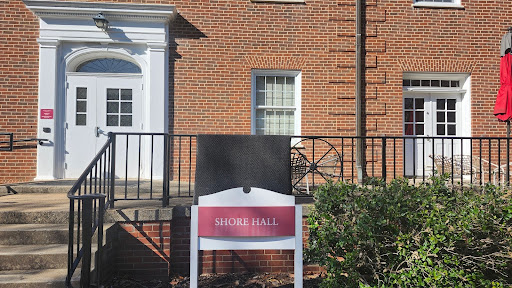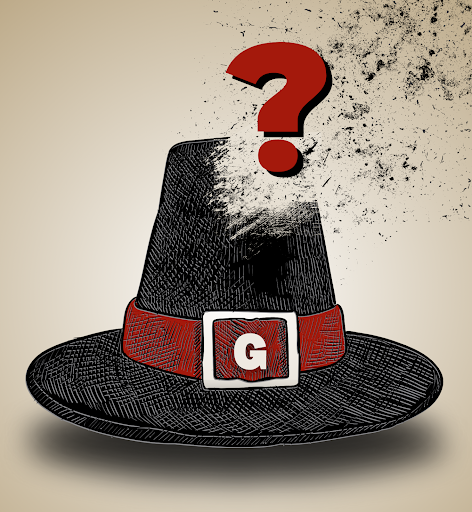“Raise your hands if you’ve heard Islamic feminists are an oxymoron.”
These were the opening words of internationally renowned Islamic feminist Amina Wadud’s lecture.
On Oct. 28, at 5 p.m., in Hege Library’s Carnegie Room, both students and professors raised their hands. The room was so full many sat on the floor. They had all come to hear Wadud speak.
Chair and Associate Professor of English Diya Abdo, who teaches the Interdisciplinary Studies course Arab and Islamic Feminisms, invited Wadud to speak at Guilford. When Wadud responded, Abdo was overjoyed.
“It made me so happy, and it felt surreal that I would actually meet her in the flesh,” said Abdo. “She immediately flashed me the biggest smile and gave me a huge bear hug.”
Born as Mary Teasley in an African-American family in Bethesda, Md., Wadud is not Arab as most Muslims are stereotyped to be. Her father, whom she looks back on with great admiration, was a Methodist minister.
Wadud converted to Islam while in college and dedicated much of her life to a pro-faith perspective on feminism, writing books such as the “Qur’an and Woman: Rereading the Sacred Text from a Woman’s Perspective” and “Inside the Gender Jihad: Women’s Reform in Islam.”
Senior Mary Heisey introduced Wadud.
“I was freaking out,” said Heisey. “I was really nervous to introduce her. Her work is very impressive to me, and I just didn’t know if I could do her justice.
“Afterwards, I went to ask her to sign my copy of her book, and I didn’t even have to ask, she just grabbed my book and started writing. I was struck by how easygoing she was. She loved Guilford. She said that Guilford students ask the best questions out of all undergraduate student environments she’s been in.”
Director of the Friends Center and Adjunct Professor of Religious Studies Max Carter attended Wadud’s lecture out of an interest in Islam and its impact on the world.
“I resonated with her presentation and have used some of her insights in further conversations,” said Carter. “One quote, especially, resonates with me: ‘Be proactive; if you react to a thing, you empower that thing.’”
Many professors teach about Wadud in their classes, including Visiting Assistant Professor of Religious Studies Betsy Mesard and Assistant Professor of Religious Studies Jill Peterfeso.
“She has said and written many things that resonate with me, but probably more significant is her approach,” said Mesard. “I think it is rare to come across a person who combines serious scholarly rigor, moral clarity and practical sensibilities in the way that Amina Wadud does.”
“In that class (Religion in the U.S.), we investigate how religion and religious identity are ‘practiced and performed’ in an American context,” said Peterfeso. “Dr. Wadud’s prayer is a wonderfully helpful example of how some individuals who love their faith tradition and who believe deeply challenge the status quo in provocative and public ways.”
The day after her lecture, Wadud sat in Abdo’s class on Arab and Islamic feminism. She enchanted students with stories of her life, such as participating in the March on Washington with Martin Luther King Jr. when she was 10-years-old.
“I remember it was hot, and we did not have a cool sign,” Wadud said.
One of Abdo’s students, junior Naomi Madaras, appreciated Wadud’s interactions with her and her classmates.
“Unlike other speakers I have known, Amina showed no sign of patronizing or belittlement and took our questions seriously,” said Madaras. “I felt she answered thoroughly, showing a deep care for the dialogue.”
Perhaps a story that exemplified her beliefs the best was about how she wore her hijab. When going through security in the airport, she would refuse to take it off. Once on the plane though, she would take it off. Wadud found that the hijab was a choice. She had to take the hijab off sometimes but only when she wanted to.
“American by force. Muslim by choice,” she said.











